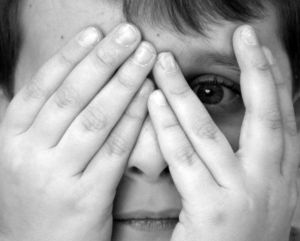By Lissa Rankin MD
Guest Writer for Wake Up World
You’re afraid to start your own business because you might fail.
You’re afraid to go to the doctor because she might find something wrong.
You’re afraid to get married because you might wind up divorced.
You’re afraid to travel to Africa because Africa can be so dangerous.
You’re afraid to do what you love because it might not pay the bills.
You’re afraid to ask out the object of your affection because you might get rejected.
You’re afraid to go for that first kiss.
You’re afraid to take guitar lessons because you might suck.
You’re afraid to quit your soul-sucking job because you might never find another one.
You’re afraid to retire because you might not have enough money.
You’re afraid to buy your dream home because you might not be able to make the mortgage.
You’re afraid to take French lessons because it might mean you’ll actually have to go to France.
You’re afraid to let them see you cry because they might think you’re unprofessional.
You’re afraid to let them see the real you because they might not like you.
Fear Is Everywhere
It surrounds us. Many of us are completely ruled by it, moment by moment, day after day. We’re panicked rats, racing around in a maze while being chased by dragons. Life is scary.
But did you know that, even more so than smoking or boozing it up or eating fried food or being a couch potato, fear is bad for your health?
There. Now you have something else to be afraid of. (Just kidding.)
Seriously, though, we experience fear for a reason. It’s meant to protect us, so that when we’re being chased by a cave bear, our fear response triggers the body’s “fight or flight” mode and we’re better able to outrun the bear.
But I have news for you, darling. There is no cave bear. It’s all in your mind. Well… really, it’s all in your body. Here’s how.
The Body’s Stress Response
Your lizard brain is a computer that can’t tell the difference between a cave bear chasing you and less life-threatening fears. When your brain registers the emotion of fear – whether it’s fear of being rejected by the one you love, fear of quitting your job, or fear of losing money – it trips a switch that triggers the hypothalamic-pituitary-adrenal (HPA) axis, activating the hypothalamus and releasing corticotrophin-releasing factor (CRF) into the nervous system. CRF stimulates the pituitary gland, causing it to secrete prolactin, growth hormone, and adrenocorticotropic hormone (ACTH), which stimulate the adrenal gland and cause it to release cortisol, which is responsible for helping the body maintain homeostasis when the brain experiences fear and assumes that a threat – like the cave bear – is a clear and present danger.
When you’re scared, your lizard brain also turns on the sympathetic nervous system (the “fight-or-flight” response), causing the adrenal glands to release epinephrine and norepinephrine, which increase pulse, blood pressure, and affect other physiological responses. The secretion of these hormones leads to a variety of metabolic changes all over the body.
Blood vessels traveling to the gastrointestinal tract, hands, and feet constrict, while vessels traveling to the heart, large muscle groups, and brain dilate, preferentially shunting blood to the organs that will help you get out of dodge in an emergency. Your pupils dilate so more light can get in. Metabolism speeds up in order to jolt you with a boost of energy by breaking down fat stores and liberating glucose into the blood stream. Your respiratory rate increases and your bronchi dilate, allowing more oxygen in, and your muscles become tense and ready to sprint away from the cave bear.
Stomach acid increases and digestive enzymes decrease, often leading to esophageal contractions, diarrhea, or constipation. Cortisol suppresses your immune system to reduce the inflammation that would accompany any wounds the attacking cave bear might inflict. Reproduction gets shut off (sex is a luxury when there’s a cave bear around!)
There Is No Cave Bear
Basically, if you’re getting attacked by a cave bear, your body ignores sleeping, digesting, and reproducing, while it focuses on running, breathing, thinking, and delivering oxygen and energy wherever it deems it necessary in order to keep you safe. When you’re scared about losing money, getting rejected, or failing at a professional venture, the body doesn’t realize that there is no cave bear. It just flips on the physiological stress response, and over time, when this stress response is repetitively triggered, nature’s biological response winds up actually doing more harm than good.
Here’s The Kicker
When your body is in the stress response, it can’t repair itself. Bodily functions break down every day, but they can only repair themselves when the body is in a state of physiological relaxation. When the stress response is repetitively triggered, organs get damaged and the body can’t fix them. The cancer cells we naturally make, which usually get blasted away by the immune system, are allowed to proliferate. The effects of chronic wear-and-tear on the human body take their toll, and we wind up sick.
It doesn’t have to be this way.
The body knows how to relax with a scientifically proven counterbalancing relaxation response. (For more details, read Dr. Herbert Bensen’s bestselling book The Relaxation Response). When the conscious forebrain thinks and feels positive thoughts, things like love, connection, intimacy, pleasure, and hope, the fearful emotions dissipate, and the hypothalamus stops triggering the stress responses. When you feel optimistic and hopeful, loved and supported, in the flow in your professional or creative life, spiritually tapped in, or sexually connected to another person, the relaxation response takes the place of the stress response.
Fear predisposes you to illness and makes recovery difficult.
Love, faith, and pleasure are preventative medicine and highly effective treatment.
When the body relaxes, the sympathetic nervous system shuts off. Cortisol and adrenaline, which damage the body over time, drop. The parasympathetic nervous system takes over. The immune system flips back on. And the body can go about its natural self-repair process.
Voila! Your mind can heal your body, and it’s not some New Age metaphysical thing. It’s simple physiology.
The Fear Cure
This is what my next book (the one after Mind Over Medicine which came out out May 2013) is all about. Hay House just offered me a book deal for my next book, The Fear Cure: Cultivating Courage As Medicine For The Body, Mind & Soul. So stay tuned for more about this topic! I’m heading to Lake Tahoe this weekend to research and write this next book, so you can be sure there will be many future blog posts about how we can live more fearlessly and love more fully.
Are You Afraid?
Do you live in a state of fear? If so, I feel you. I was once like that, until I learned how to transform my fear into faith. (You can read more about how I did that here.)
How do you handle your fear? Has fear resulted in illness in your body? Tell us your story.
Trying to live fearlessly,
Previous articles by Lissa
- 8 Ways Overcoming Fear Can Improve Your Health
- Why Engaging In Work You Love Could Save Your Life
- The Health Benefits Of Finding Your Tribe
- 7 Tips For Finding Your Tribe
- 10 Signs You’ve Found Your Calling
About the author
 Lissa Rankin, MD is a mind-body medicine physician, founder of the Whole Health Medicine Institute training program for physicians and health care providers, and the New York Times bestselling author of Mind Over Medicine: Scientific Proof That You Can Heal Yourself. She is on a grass roots mission to heal health care, while empowering you to heal yourself.
Lissa Rankin, MD is a mind-body medicine physician, founder of the Whole Health Medicine Institute training program for physicians and health care providers, and the New York Times bestselling author of Mind Over Medicine: Scientific Proof That You Can Heal Yourself. She is on a grass roots mission to heal health care, while empowering you to heal yourself.
Lissa blogs at LissaRankin.com and also created two online communities – HealHealthCareNow.com and OwningPink.com. She is also the author of two other books, a professional artist, an amateur ski bum, and an avid hiker. Lissa lives in the San Francisco Bay area with her husband and daughter.

If you've ever found value in our articles, we'd greatly appreciate your support by purchasing Mindful Meditation Techniques for Kids - A Practical Guide for Adults to Empower Kids with the Gift of Inner Peace and Resilience for Life.
In the spirit of mindfulness, we encourage you to choose the paperback version. Delve into its pages away from screen glare and notifications, allowing yourself to fully immerse in the transformative practices within. The physical book enriches the learning process and serves as a tangible commitment to mindfulness, easily shared among family and friends.
Over the past few years, Wake Up World has faced significant online censorship, impacting our financial ability to stay online. Instead of soliciting donations, we're exploring win-win solutions with our readers to remain financially viable. Moving into book publishing, we hope to secure ongoing funds to continue our mission. With over 8,500 articles published in the past 13 years, we are committed to keeping our content free and accessible to everyone, without resorting to a paywall.








